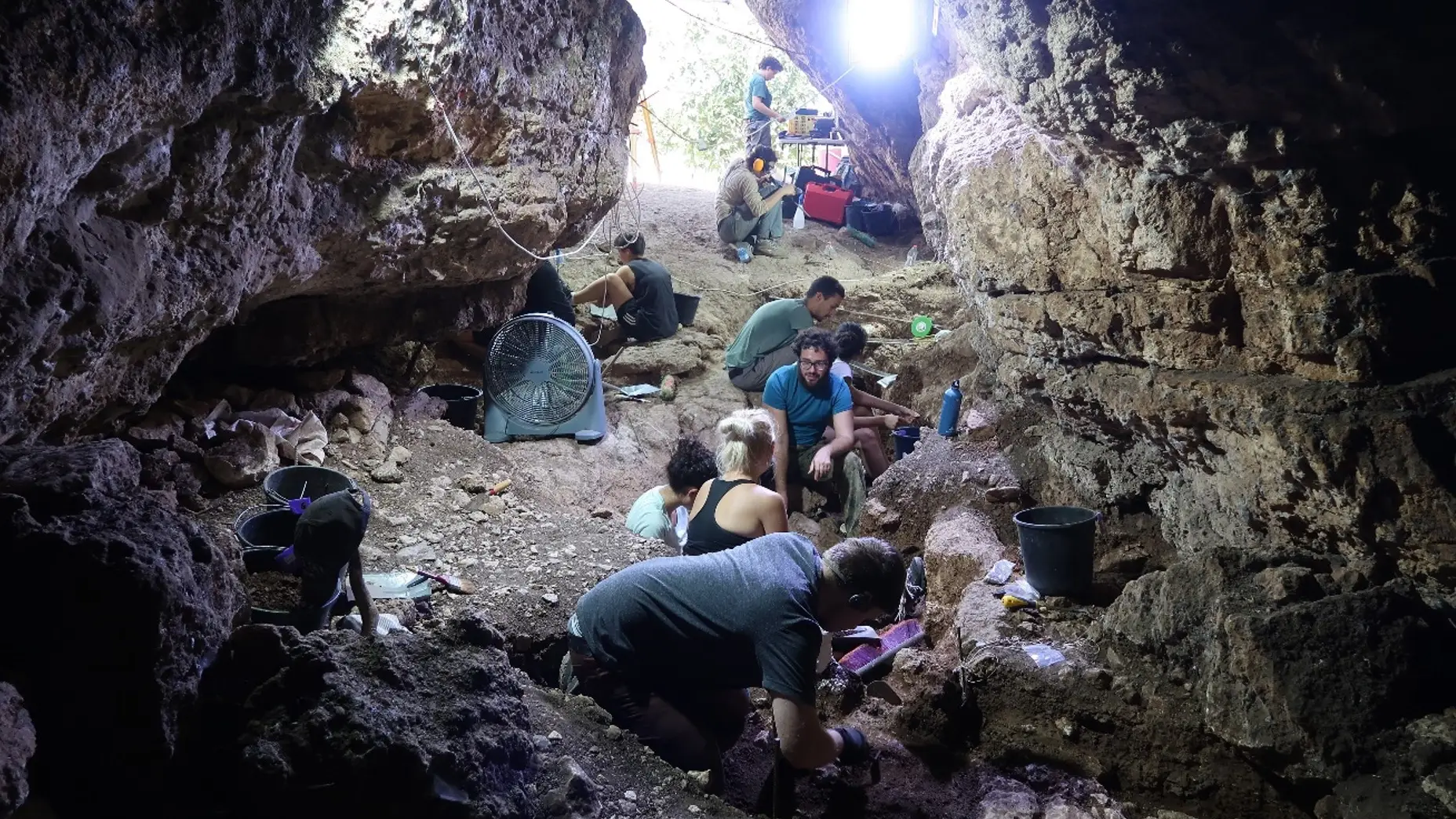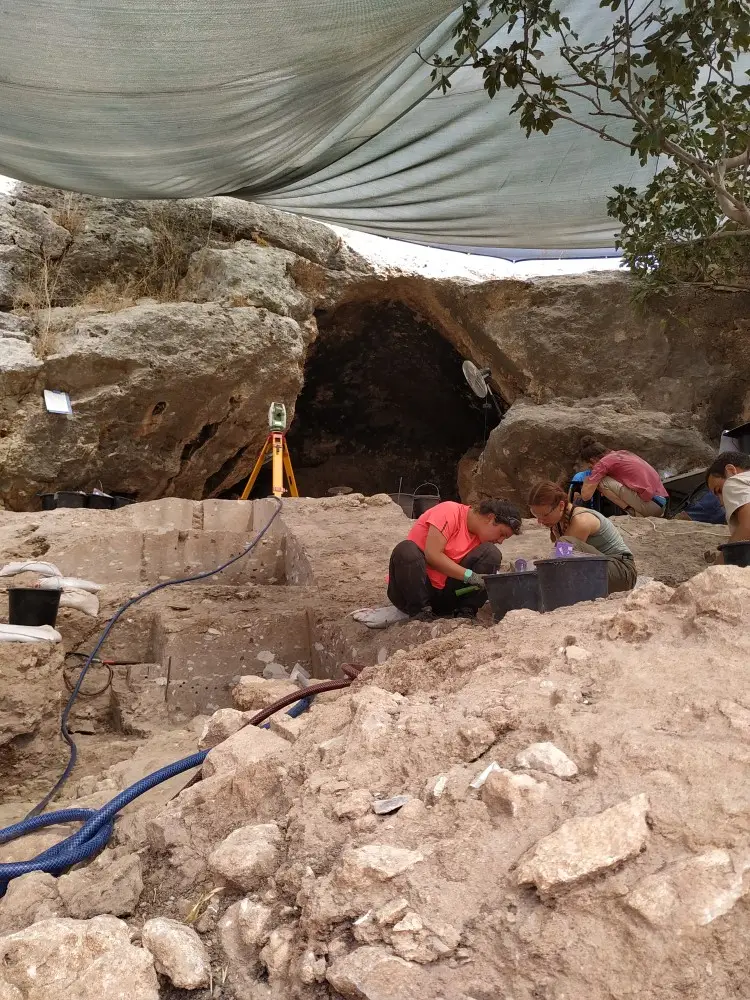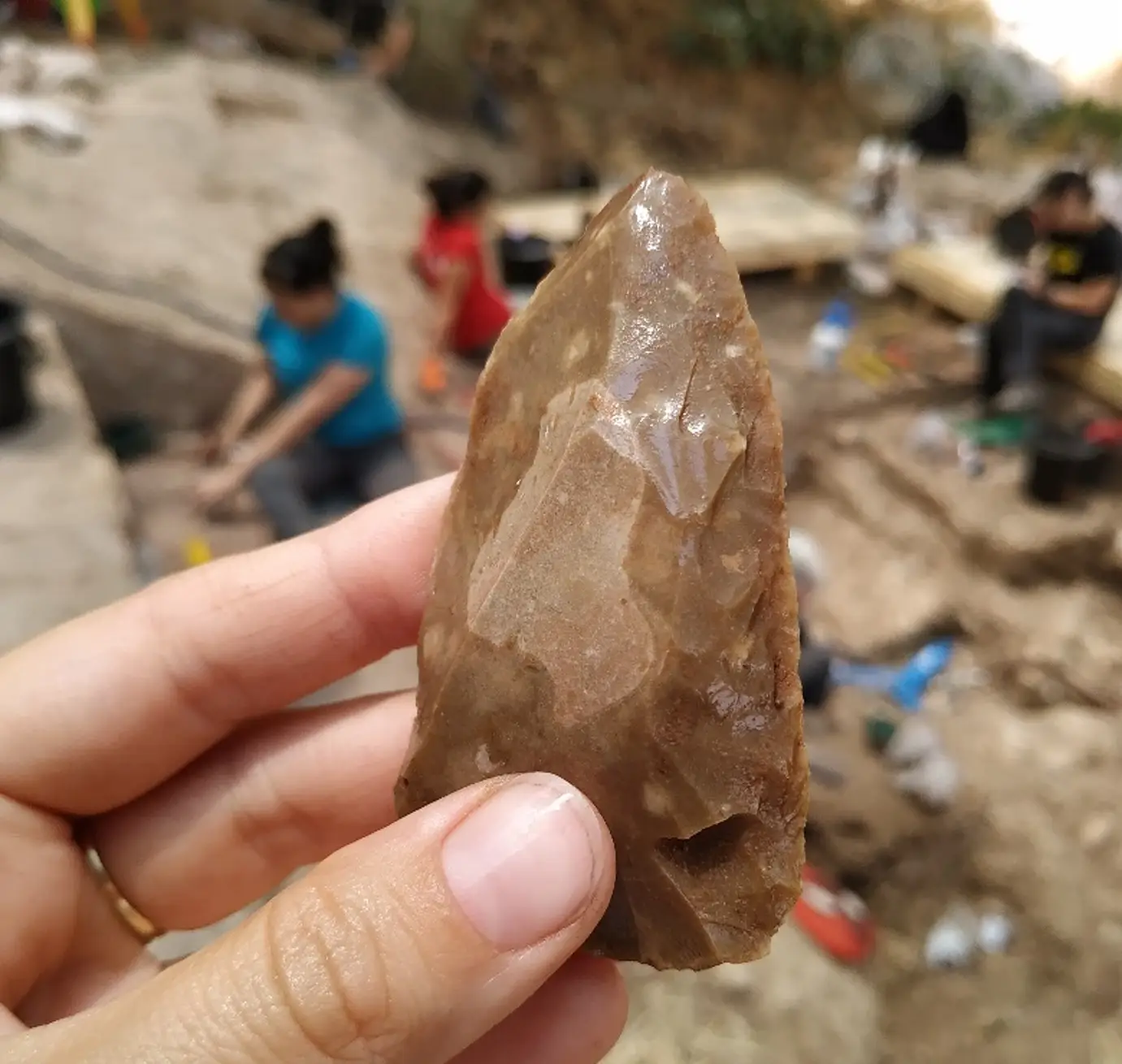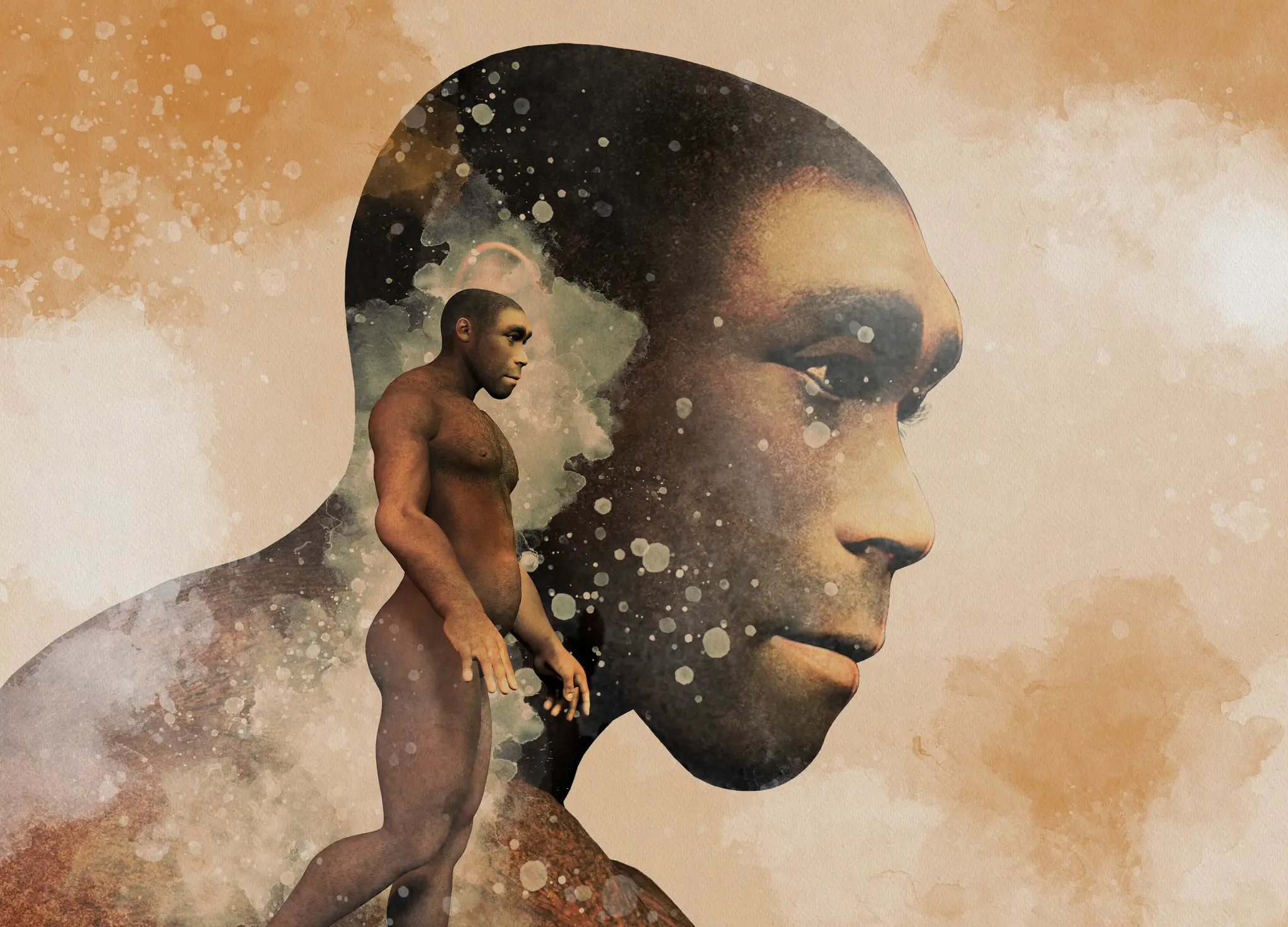
Scientists examining an ancient cave have made a discovery about humanity's history that dates back some 110,000 years.
Excavations took place in the Tinshemet Cave, a newly excavated Middle Paleolithic site in Israel.
Taking to the site, teams wanted to see what they could learn about Homo sapiens from thousands, and thousands, of years ago.
And in publishing their findings in the Nature Human Behaviour journal, scientists have made discoveries that are beginning to reshape our understanding of human history taking back to the Middle Palaeolithic period in the Near East, which includes the Arabian Peninsula, Cyprus, Egypt, Iraq, Iran, Israel, Jordan, Lebanon, Palestinian territories, Syria, and Turkey.
Advert
The cave was already known to be rich when it came to archaeological and anthropological finds that could be studied by experts.

But it was also discovered to include human burials; burials that were the first to be discovered from the Middle Palaeolithic period in more than half a century.
The study, published yesterday (11 March), is revolutionary in that the findings include overwhelming evidence that Neanderthals and people in the region not only coexisted but also shared aspects of daily life, technology, and burial customs.
A species separate related to humans, Neanderthals were humanity's closest common ancestor until they seemingly died out around 40,000 years ago. Shorter than humans, Neanderthals had broader bodies and shorter limbs.

"These findings underscore the complexity of their interactions and hint at a more intertwined relationship than previously assumed," the paper writes.
The excavation of Tinshemet Cave was led by Professor Yossi Zaidner of the Hebrew University of Jerusalem, Professor Israel Hershkovitz of Tel Aviv University, and Dr Marion Prévost of the Hebrew University of Jerusalem, with the entire process going back to 2017 when it first started in the cave.
A main aim of the research team has been to find out the true nature of human relationships with Neanderthals in the mid-Middle Palaeolithic Levant and whether they rivals, peaceful neighbours, or even worked together.

The research states that working together was very much a thing both species did. It writes: "By integrating data from four key fields - stone tool production, hunting strategies, symbolic behaviour, and social complexity - the study argues that different human groups, including Neanderthals, pre-Neanderthals, and Homo sapiens, engaged in meaningful interactions.
"These exchanges facilitated knowledge transmission and led to the gradual cultural homogenisation of populations.
"The research suggests that these interactions spurred social complexity and behavioural innovations.
"For instance, formal burial customs began to appear around 110,000 years ago in Israel for the first time worldwide, likely as a result of intensified social interactions."
It adds: "A striking discovery at Tinshemet Cave is the extensive use of mineral pigments, particularly ochre, which may have been used for body decoration. This practice could have served to define social identities and distinctions among groups."
Prof Zaidner said it showed the region and Israel was a 'melting pot' of different human groups that evolved together in sync, working together to 'drive cultural and technological innovation'.
Topics: Education, History, Science, Technology, World News, Archaeology